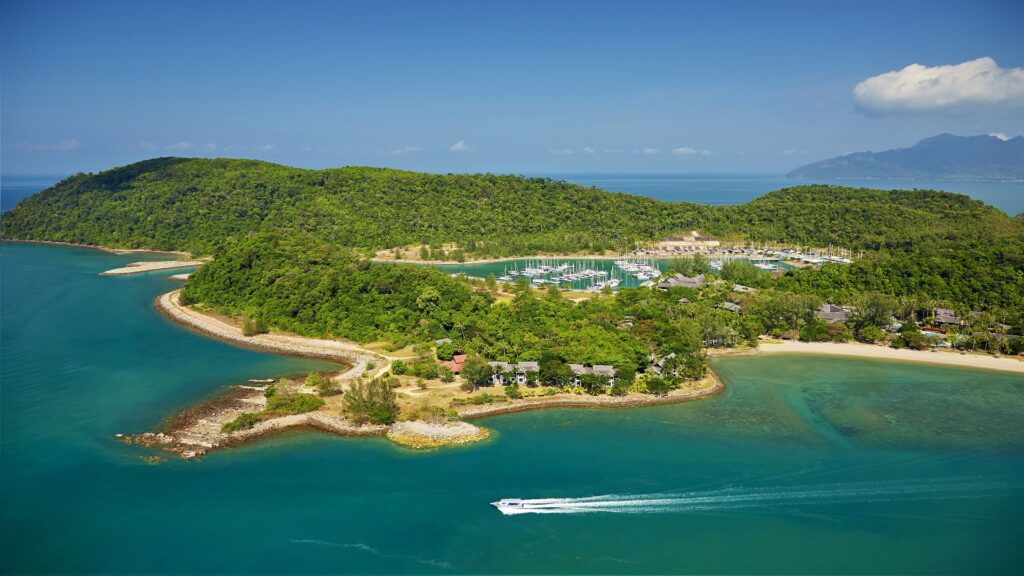
Pic courtesy of Rebak Langkawi
by Dr Rahim Said
Langkawi often finds itself compared to regional tourist giants like Phuket and Bali, with some travellers claiming it’s the pricier option. However, Datuk Alexander Isaac, advisor to the Niagakawi Langkawi Association, has been quick to debunk this myth.
According to Alexander, Langkawi remains a significantly more affordable destination than its glitzier counterparts in Thailand and Indonesia. So why does this perception of high costs persist?
Let’s break it down. Travellers might assume that Langkawi’s stunning beaches, luxury resorts, and growing reputation for high-end tourism translate into high prices.
However, as Alexander points out, Langkawi offers various accommodations catering to every budget. Whether looking for five-star luxury or something more modest, Langkawi can accommodate you without burning a hole in your pocket. This flexibility is something Phuket and Bali, with their booming tourist economies, sometimes lack.
Take Phuket, for example. Known for its lively nightlife and crowded beaches, Phuket has seen a rise in prices for food, activities, and accommodation over the years, driven by overwhelming tourist demand.
Bali, similarly, offers a mix of budget and luxury, but with its growing reputation as a global hotspot, prices have crept up — especially in more popular areas like Ubud and Seminyak.
Langkawi, on the other hand, provides a refreshing balance. You can enjoy the same natural beauty, cultural experiences, and a tropical getaway at a fraction of the cost.
Alexander rightly emphasises that the perception of Langkawi as expensive depends largely on choices. Opting for a five-star resort with a private beach experience will naturally cost more than a family-run guesthouse nestled in a quieter part of the island.
But the key here is choice — Langkawi doesn’t demand a luxury budget. You can enjoy its beauty and activities without splurging.
Of course, no destination is without its challenges, and Alexander also highlighted concerns around Langkawi’s ferry services, especially during bouts of bad weather.
Recent ferry delays and cancellations due to storms may have tested travellers’ patience, but the island’s ability to still draw crowds even in poor conditions speaks volumes about its enduring appeal.
Addressing transportation issues remains crucial as Langkawi’s reliance on ferries as the main mode of transport can be a pain point for some tourists.
The government would do well to heed Alexander’s call for improvements in this area, ensuring that access to the island remains as smooth as its tourism offerings.
Calls for a boycott of Langkawi to improve service quality are not only unnecessary, as Alexander points out, but also counterproductive. Boycotting a destination in the hopes that it will magically “up its game” overlooks the broader reality of tourism economics.
Langkawi, like many tourist spots, thrives on a steady stream of visitors. If anything, constructive feedback from tourists and greater collaboration between the local tourism industry and the government are far more effective ways of improving services.
Ultimately, Langkawi’s appeal lies in its balance between affordability and quality. It’s an island that offers something for everyone — from honeymooners seeking privacy to budget travellers wanting an island escape.
The fact that it remains cheaper than Phuket and Bali is a testament to its resilience and ability to adapt to the needs of various tourists.
So, is Langkawi as expensive as some make it out to be?
Hardly. For those looking for a tropical escape without the Phuket price tag or Bali’s crowds, Langkawi remains one of the region’s best-kept secrets. And it’s high time more people recognised that.
Dr. Rahim Said is a human behaviourist and regular contributor to digital media platforms. He is a professional management consultant, a corporate trainer and an executive coach specialising in coaching senior executives and individual entrepreneurs to modify their behaviour in the pursuit of their cherished missions. (The views expressed by our columnist are entirely his own)